Helping diagnosing and treating a wide range of minor illnesses
Our team of highly qualified independent prescribers are experts in diagnosing and treating a wide range of minor illnesses. With the ability to provide differentiated and undifferentiated diagnosis, you can trust that you are in the best hands. We ensure regular CPD updates to stay up-to-date with best practices and work within a scope of practice to provide safe and effective treatment. All clinical work is audited by a supervisor, with an on-call Advanced Clinical Practitioner available at all times.
Accreditations and Partners
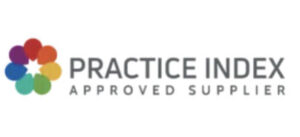

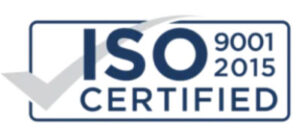
Qualified to provide key services
We can help
- Reduce stress and workload
- Improve patient health
- Providing patients with choice
- Medicines Reconciliation
Providing the support required
Remote Minor Illnesses Clinic - Comprehensive Care by Advanced Clinical Practitioners (ACPs) at National Clinical Services (NCS)
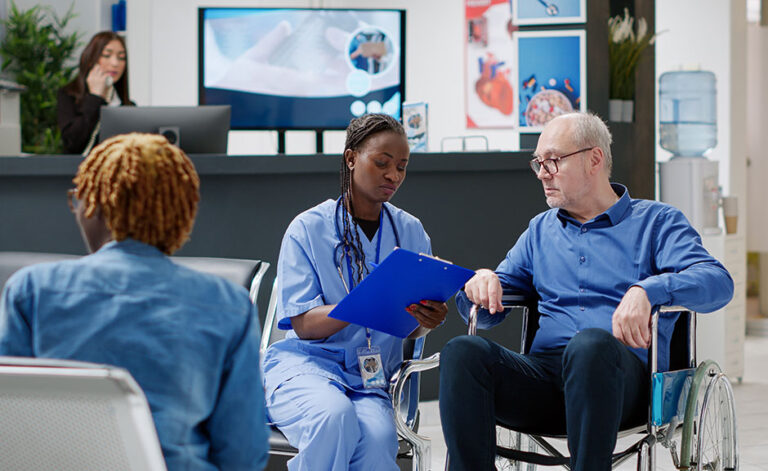
Background
Client: Various GP Practices
Service Provider: National Clinical Services (NCS)
Objective: Provide comprehensive remote minor illness services through Advanced Clinical Practitioners (ACPs) to handle a wide range of conditions for patients of all ages.
GP practices were struggling to cope with the increased demand for minor illness consultations, particularly following the COVID-19 pandemic. National Clinical Services (NCS) provided remote support through a team of independent prescribing ACPs, ensuring expert diagnosis, treatment, and patient care across a variety of ailments and systems.
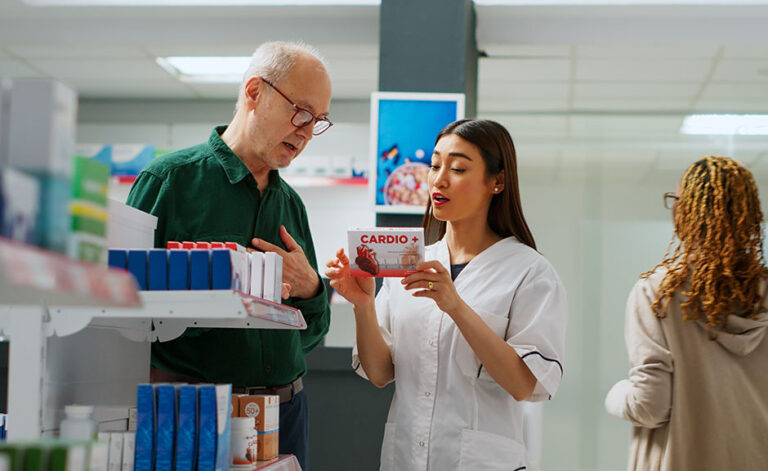
Approach
NCS deployed Advanced Clinical Practitioners with a broad skill set to manage minor illnesses remotely. These practitioners received regular Continuing Professional Development (CPD) updates, worked within strict clinical governance frameworks, and were supervised through ongoing audits and mentorship programs. A senior Advanced Clinical Practitioner was always on call to support complex cases.
Comprehensive List of Minor Illnesses Managed by ACPs:
The ACPs at NCS were equipped to handle a wide range of minor ailments across all body systems and for various patient groups, including children, adults, and the elderly.
- Cardiovascular System:
- Hypertension management and adjustments
- Palpitations
- Minor, non-cardiac chest pain
- Stable angina management
- Respiratory System:
- Coughs and colds
- Asthma exacerbations
- Chronic obstructive pulmonary disease (COPD) flare-ups
- Bronchitis
- Upper respiratory tract infections (URTIs)
- Sinusitis
- Sore throats, including tonsillitis and pharyngitis
- Flu-like symptoms
- Gastrointestinal System:
- Gastroenteritis (diarrhoea and vomiting)
- Constipation and haemorrhoids
- Irritable bowel syndrome (IBS) flare-ups
- Acid reflux (GORD) and heartburn
- Indigestion
- Food poisoning
- Abdominal pain (non-surgical)
- Bloating and gas
- Musculoskeletal System:
- Acute joint pain and swelling
- Soft tissue injuries (sprains, strains, and tendonitis)
- Back pain (acute, non-radiating)
- Minor fractures (e.g., fingers and toes)
- Neck pain
- Frozen shoulder
- Minor arthritis flare-ups
- Dermatological Conditions:
- Rashes (eczema, psoriasis, hives)
- Fungal infections (athlete’s foot, ringworm)
- Bacterial skin infections (impetigo, cellulitis)
- Viral infections (shingles, chickenpox)
- Insect bites and stings
- Sunburn and minor burns
- Acne and dermatitis
- Cold sores and warts
- Genitourinary System:
- Urinary tract infections (UTIs)
- Cystitis
- Thrush
- Vaginal infections and discharge
- Erectile dysfunction (non-complex)
- Minor menstrual issues (pain, irregular periods)
- Pelvic inflammatory disease (PID)
- Contraception advice and adjustments
- Testicular pain (non-emergent)
- Prostatitis (non-complicated)
- Neurological Symptoms:
- Headaches and migraines
- Tension headaches
- Dizziness and vertigo
- Tiredness and fatigue
- Minor memory lapses (non-dementia related)
- Ear, Nose & Throat (ENT):
- Ear infections (otitis media, otitis externa)
- Tinnitus
- Blocked ears (earwax buildup)
- Nosebleeds
- Nasal congestion and sinusitis
- Hay fever and allergic rhinitis
- Tonsillitis and sore throats
- Hearing loss (temporary)
- Children’s Minor Illnesses:
- Childhood infections (chickenpox, hand-foot-and-mouth, slap cheek)
- Fever management
- Vomiting and diarrhoea
- Ear infections
- Respiratory tract infections (bronchiolitis, croup)
- Skin rashes and eczema
- Teething problems
- Conjunctivitis
- Head lice
- Infectious Diseases:
- Chickenpox and shingles
- Measles, mumps, rubella
- Hand-foot-and-mouth disease
- Scarlet fever
- Ringworm
- Conjunctivitis (viral or bacterial)
- Scabies
- Cold sores
- Allergic Reactions:
- Mild allergic reactions (rashes, itching, swelling)
- Food allergies (non-life-threatening)
- Hay fever
- Drug allergies (non-severe)
- Mental Health (Non-Crisis):
- Anxiety and mild depression management
- Sleep disorders (insomnia)
- Stress-related symptoms
Supervision & Quality Control:
- Clinical Audits: Regular audits were conducted to ensure high standards of patient care, with all cases reviewed for accuracy and safety.
- On-Call Advanced Clinical Practitioner: An ACP was always available for consultation and support in complex or urgent cases, ensuring clinicians had the necessary guidance when needed.
- CPD & Training: ACPs received up-to-date training on diagnosing and treating minor illnesses, keeping their skills in line with current clinical guidelines.

Results
- Improved Access: Patients received prompt care for a wide variety of minor ailments, reducing pressure on GPs and emergency departments.
- Effective Remote Care: Remote consultations allowed patients to receive expert advice and treatment from the comfort of their homes, without the need for in-person appointments.
- High Patient Satisfaction: The timely, effective, and convenient service led to high levels of patient satisfaction, with quick interventions preventing the escalation of minor conditions.
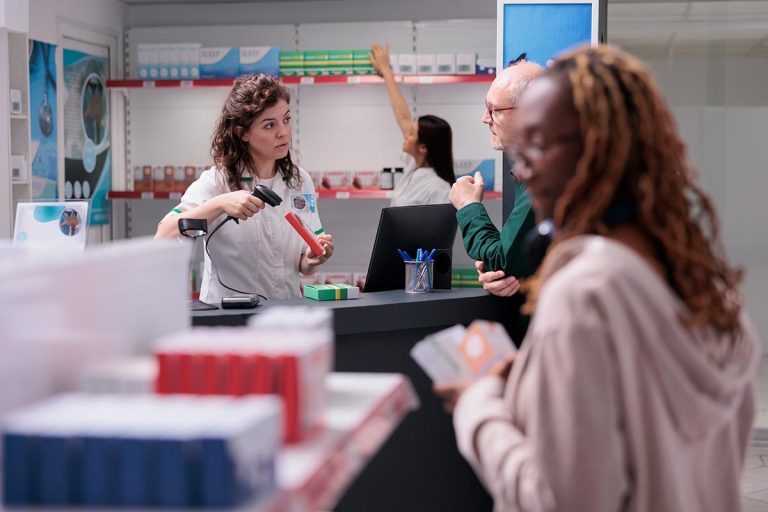
Conclusion
National Clinical Services (NCS) delivered a comprehensive Remote Minor Illnesses Clinic through a team of highly qualified Advanced Clinical Practitioners. This service ensured that patients of all ages, from children to the elderly, received expert care for a wide range of minor conditions, improving access to healthcare and alleviating pressure on local GP services. The ACPs’ ability to work remotely, backed by robust supervision and ongoing training, highlighted the efficiency and quality of care provided by NCS.
-
ICBs
-
PCNs
-
Pharmacists
Don’t just take our word for it…
“As Practice Manager, I want to express my gratitude to Yasin Patel for his invaluable support in establishing our remote Minor Illnesses Clinic. His professional service has been instrumental in addressing staffing challenges and providing additional coverage when needed. The clinically proven approach has significantly alleviated pressures on our team. Thank you, Yasin!”
Kerry - Practice Manager
Frequently asked questions
How much ARRS funding can a PCN benefit from?
A PCN is allocated a sum for an entire year based on its weighted population share of the total ARRS funding.
Although PCNs are able to claim up to this maximum sum each year, an underspend has commonly been reported.
From 1 October 2024, PCNs will be able to claim up to £65,838 (annual equivalent) per ARRS clinical pharmacist working at band 7-8a.
In outer London, this rises to £73,189, and £76,313 in inner London.
How much is the ARRS funding?
Funding for the new ARRS GP roles has been calculated at £1.303 multiplied by the PCN’s weighted population as of the start of 2024.
According to NHS England, the overall value of the ARRS in 2023/24 is in excess of £1billion.
The role of ARRS in primary care
According to NHS England, The ARRS scheme was introduced as a key part of the government’s manifesto commitment to improve access to general practice.
Through the scheme, primary care networks (PCNs) can claim reimbursement for the salaries (and some on costs) of 18 new roles within the multidisciplinary team selected to meet the needs of the local population.
By expanding general practice capacity, the scheme improves patient access, supports the delivery of new services, and widens the range of primary care services available.
How many ARRS roles are available?
There are around 18 roles available, including:
- Clinical Pharmacist
- Pharmacy Technician
- Health and Well-being Coach
- Dietician
- Podiatrist
- Paramedic
- Adult Mental Health Practitioner
- Children and Young People’s Mental Health Practitioner
- Nursing Associate
- Trainee Nursing Associate
- Occupational Therapist
- First-contact Physiotherapist
- Care Co-ordinator
- Physician Associate
- Social Prescribing Link Worker
- General Practice Assistant
- Digital and Transformation Lead
- Advanced Practitioner
What does the ARRS stand for in the NCS?
ARRS stands for The Additional Roles Reimbursement Scheme.
In August 2024, the government announced that £82 million of additional funding from the Department of Health and Social care budget would be used to enable changes to the ARRS scheme, which means that in 2024/25 it can be used to recruit newly qualified GPs into the NHS and practices will be reimbursed for their salary costs. However, this changes the nature of the scheme as it had been focused on ‘additional roles’ that broaden the skill mix and range of services available to patients in general practice rather than funding core GP roles.
Who are National Clinical Services and how can we help assist PCN’s with ARRS?
How does the application process for ARRS funding work?
Who is eligible for ARRS funding?
What is a PCN?
PCN stands for Primary Care Network.
A Primary Care Network (PCN) is a group of GP practices that collaborate closely with other health and social care staff and organisations to deliver integrated services to their local community.
This model enhances the ability to provide comprehensive, coordinated care tailored to the specific needs of the population they serve.
Across England, there are around 1,250 PCNs covering populations of, on average, 50,000 people – although this varies significantly, with more than a third of PCNs covering more than 50,000 people. In some cases, a single practice that has met the size requirements of a network can also function as a network.
Get in Touch
Choose a time that works best for you. Once you are done setting up a time, please check your email for your confirmation.
